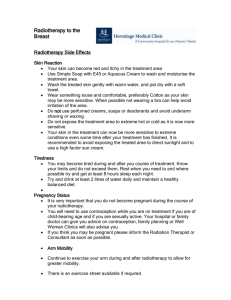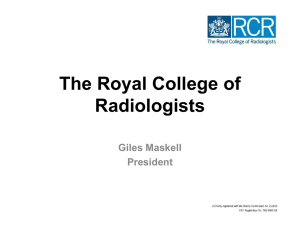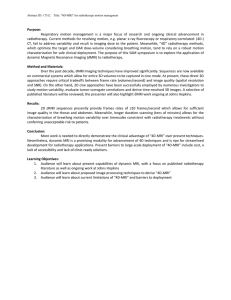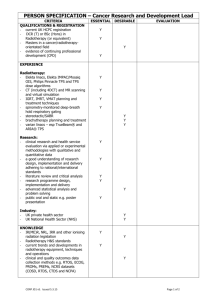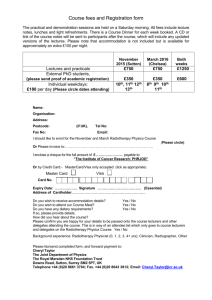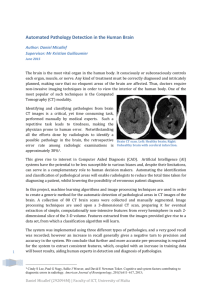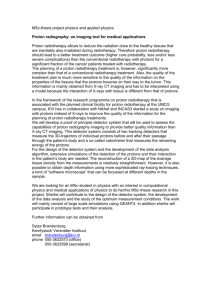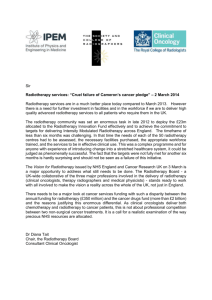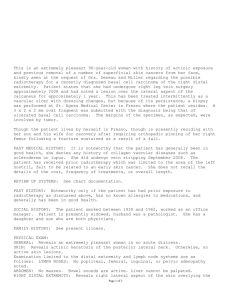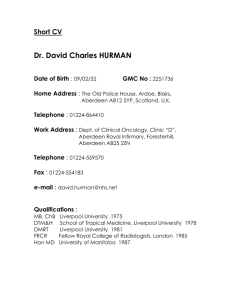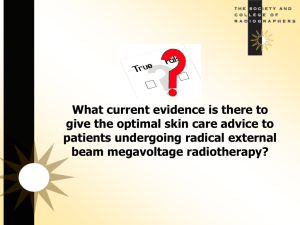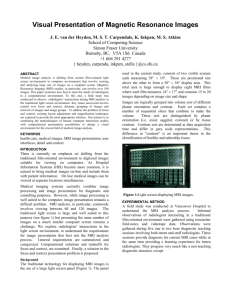RCR Press Release – response to cancer strategy
advertisement
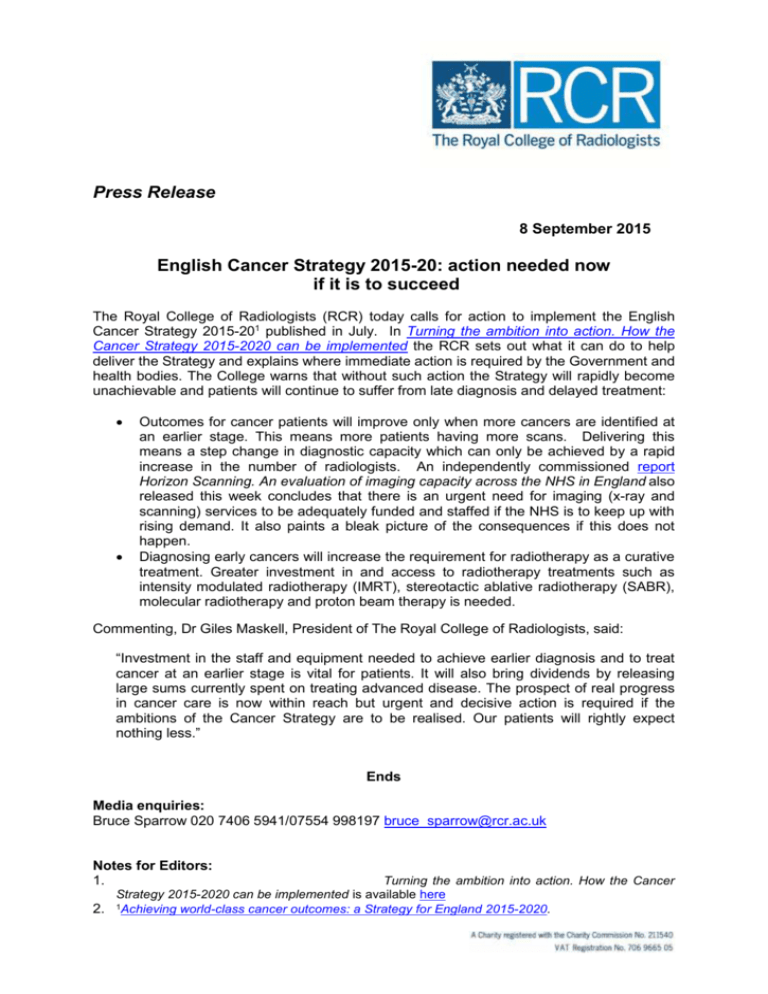
Press Release 8 September 2015 English Cancer Strategy 2015-20: action needed now if it is to succeed The Royal College of Radiologists (RCR) today calls for action to implement the English Cancer Strategy 2015-201 published in July. In Turning the ambition into action. How the Cancer Strategy 2015-2020 can be implemented the RCR sets out what it can do to help deliver the Strategy and explains where immediate action is required by the Government and health bodies. The College warns that without such action the Strategy will rapidly become unachievable and patients will continue to suffer from late diagnosis and delayed treatment: Outcomes for cancer patients will improve only when more cancers are identified at an earlier stage. This means more patients having more scans. Delivering this means a step change in diagnostic capacity which can only be achieved by a rapid increase in the number of radiologists. An independently commissioned report Horizon Scanning. An evaluation of imaging capacity across the NHS in England also released this week concludes that there is an urgent need for imaging (x-ray and scanning) services to be adequately funded and staffed if the NHS is to keep up with rising demand. It also paints a bleak picture of the consequences if this does not happen. Diagnosing early cancers will increase the requirement for radiotherapy as a curative treatment. Greater investment in and access to radiotherapy treatments such as intensity modulated radiotherapy (IMRT), stereotactic ablative radiotherapy (SABR), molecular radiotherapy and proton beam therapy is needed. Commenting, Dr Giles Maskell, President of The Royal College of Radiologists, said: “Investment in the staff and equipment needed to achieve earlier diagnosis and to treat cancer at an earlier stage is vital for patients. It will also bring dividends by releasing large sums currently spent on treating advanced disease. The prospect of real progress in cancer care is now within reach but urgent and decisive action is required if the ambitions of the Cancer Strategy are to be realised. Our patients will rightly expect nothing less.” Ends Media enquiries: Bruce Sparrow 020 7406 5941/07554 998197 bruce_sparrow@rcr.ac.uk Notes for Editors: 1. Turning the ambition into action. How the Cancer Strategy 2015-2020 can be implemented is available here 2. 1Achieving world-class cancer outcomes: a Strategy for England 2015-2020. 3. The Royal College of Radiologists www.rcr.ac.uk has over 9,800 Fellows and members worldwide, representing the specialties of clinical oncology and clinical radiology. The College sets and maintains the standards for entry to and practice in the specialties in addition to leading and supporting practitioners throughout their careers. 4. Consultant radiologists are doctors who interpret x-rays, scans and other types of medical images to detect and diagnose disease and injury. Timely, accurate diagnosis using imaging techniques can speed up access to treatment, prevent or reduce hospital stays and offer major cost savings. In the UK we have huge growth in demand for imaging but still lag way behind comparable Western countries. 5. Clinical oncologists are doctors skilled in non-surgical forms of cancer treatment, using radiotherapy, chemotherapy, hormone therapy, radioactive isotopes and other special techniques to treat people with cancer. The clinical oncologist is often the only doctor, together with the GP, to manage the patient through the whole course of their cancer. Page 2 of 2
